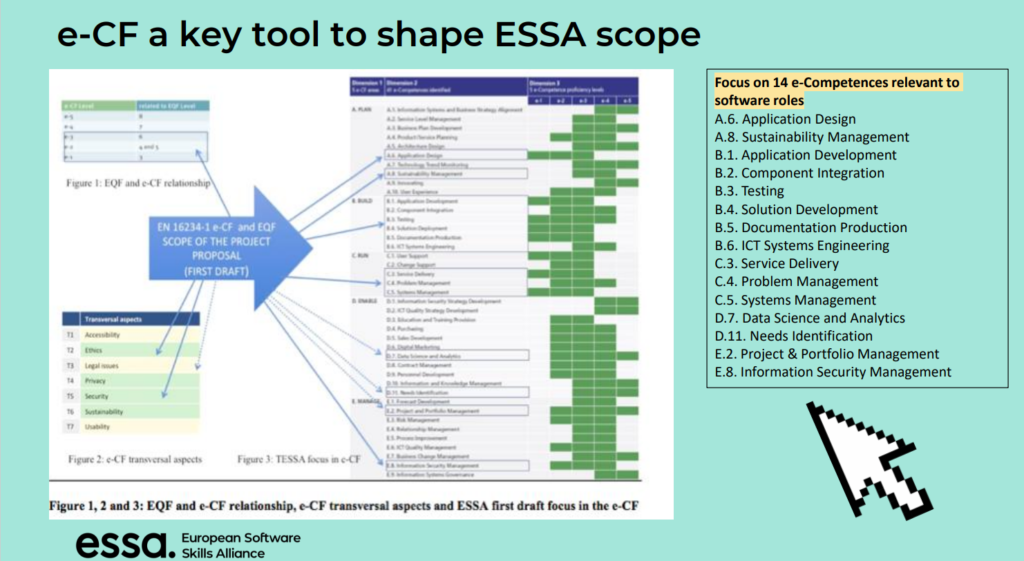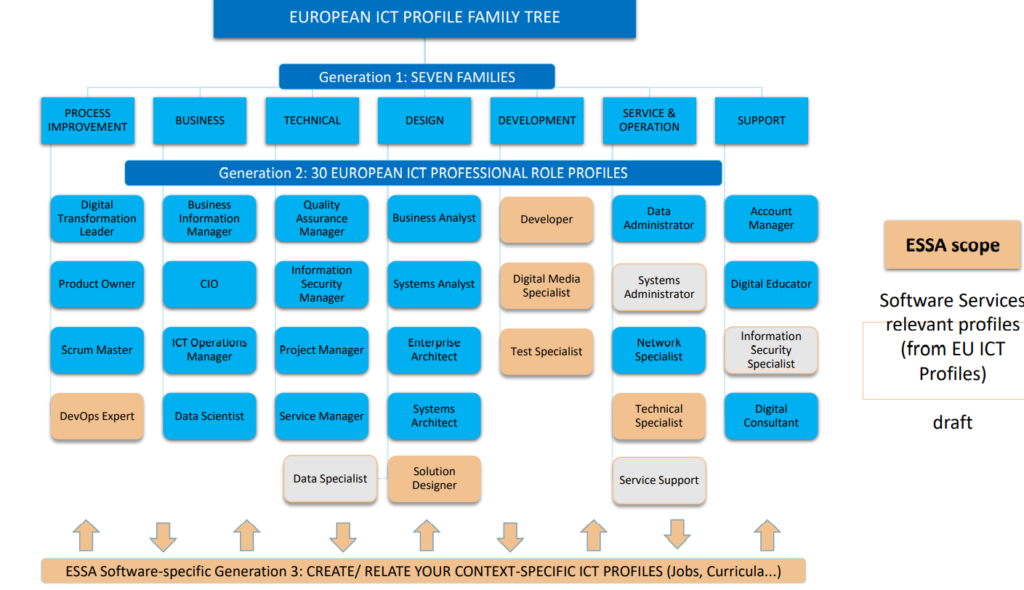On November 9, our project associated partner IT Professionalism Europe (ITPE in short) organised a global online conference together with IFIP-IP3 and CEN TC 428 called “Never waste a good crisis: develop a trustworthy digital ecosystem“. The European Software Skills Alliance was introduced to more than 50 participants, during an interactive session on the use of the e-Competence Framework (e-CF) in practice (watch it).
ITPE and the co-hosts of the event have concocted and delivered an interesting programme that helped remote attendees to understand the latest market insights on workforce skills and their levels in IT and get an introduction to the initiatives out there that tackle the most pressing challenges, such as skills gaps, in the IT profession.
What is e-CF?
e-CF classifies 40 competences for the ICT professionals. It establishes a common language for competences, skills and proficiency levels across Europe. Competences in the e-CF are organised according to five ICT business areas and related to the European Qualifications Framework (EQF). The e-CF is developed by experts and stakeholders under the umbrella of the CEN Workshop on ICT Skills.
ITPE has been a leading force pushing for European standards of IT professionalism. Experts Mary Cleary (Irish Computer Society) and Jutta Breyer both stressed the importance of IT professional frameworks such as the e-Competence Framework (e-CF) to guide individuals and organisations in developing a trustworthy digital ecosystem in Europe.
e-CF to ensure ESSA results can be widely applicable and understood
In the ESSA project, the e-CF is used as a reference point across all project stages and outputs said Marie Montaldo, Project Communications Manager at DIGITALEUROPE. She showcased how exactly ESSA uses this framework, explaining the value of the inter-relations between the e-CF and the European Qualification Framework (EQF) as well as the European ICT profiles.
ESSA uses e-CF and identified fourteen e-Competences that are relevant to software roles. The results of the 2021 Needs Analysis research helped define which of those competences are central to software roles and which have limited relevance.

The recognised European ICT Professional Role Profiles built on the e-CF standard to provide a neutral set of roles. ESSA targets six of them, namely Developer, Test specialist, Technical (software) specialist, DevOps expert, Digital media specialist, and Solution designer.

These profiles represent the core of the ESSA scope. It guides the work in the project, from building a strong Software Skills Strategy for the sectoral cooperation on skills development to the creation of VET curricula, programmes, and material to skill, upskill, and reskill individuals into high demand professional software roles across Europe.
e-CF legitimates ESSA work
In 2021, e-CF supported the project’s work with:
- The identification and formulation of the occupational profiles for software roles (see the six role profiles highlighted above)
- The provision of a largely known and agreed language for the data collection (both demand and supply for software skills)
In the Software Skills Strategy (coming up soon), ESSA will consolidate and suggest adjustments to the identified software role profiles and define educational profiles for the introduction of the VET curricula and programmes.
>> Download the presentation.

